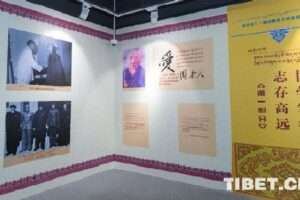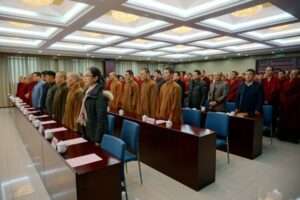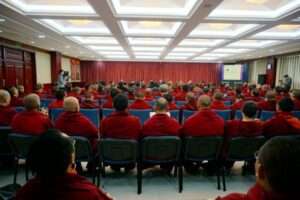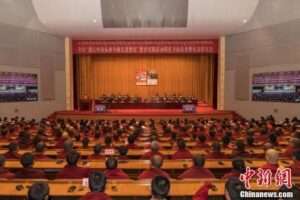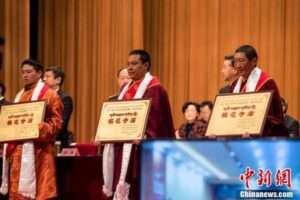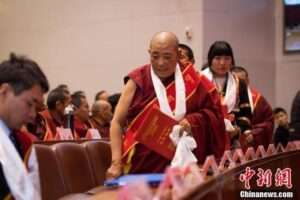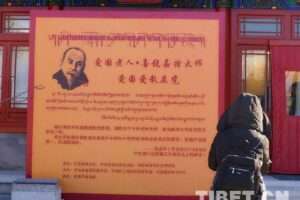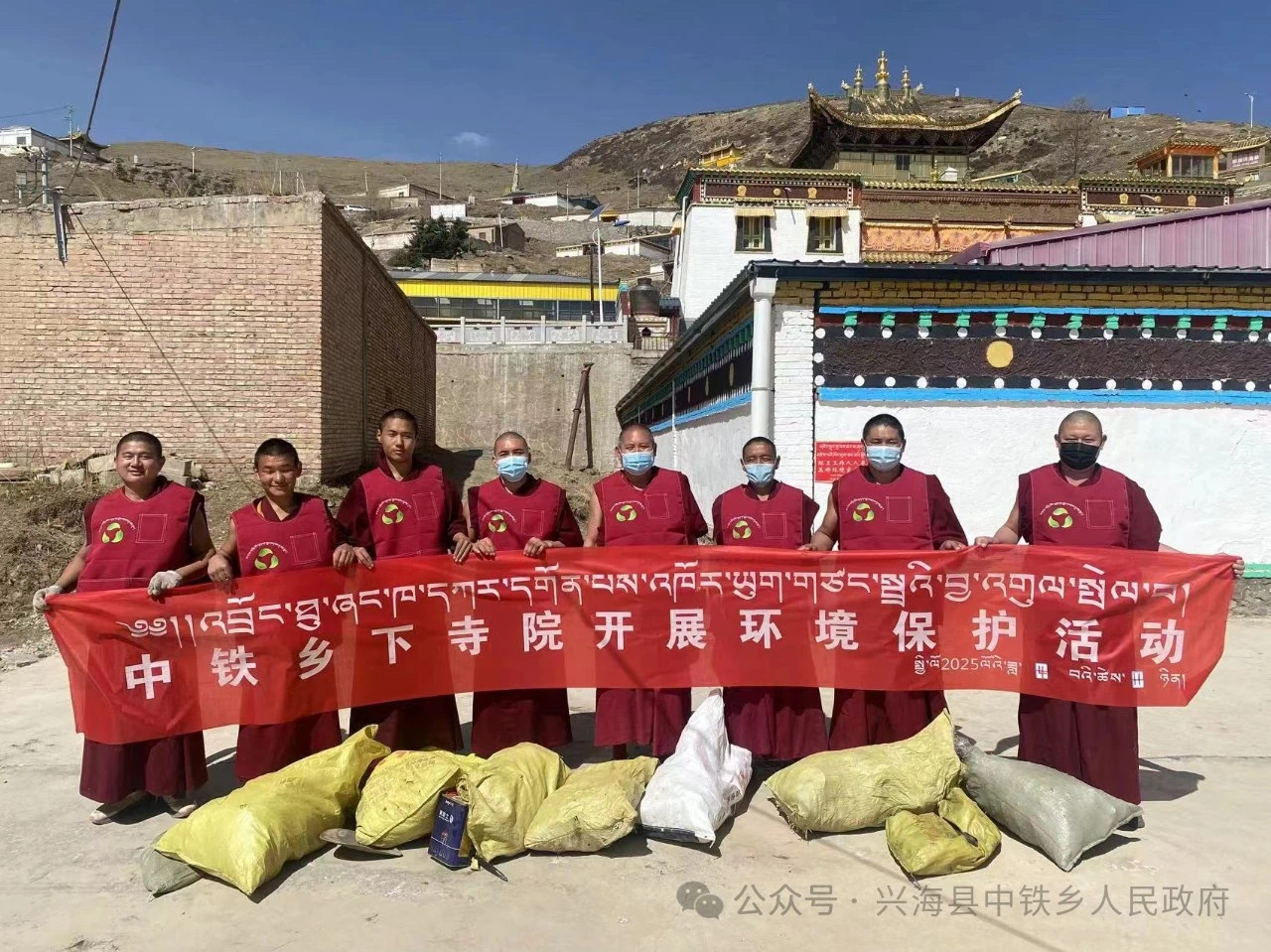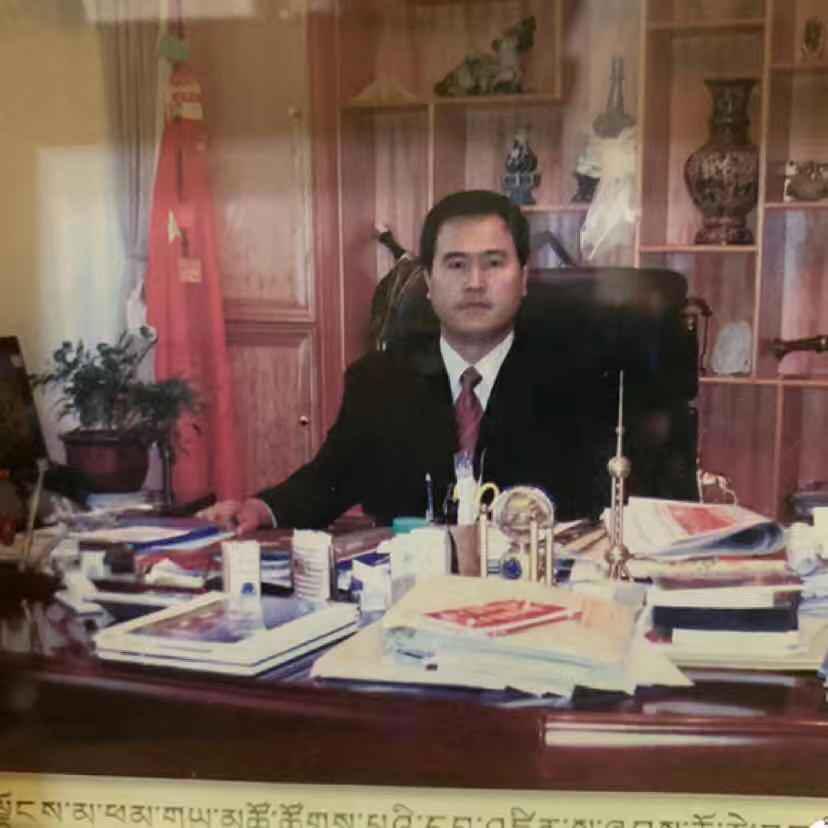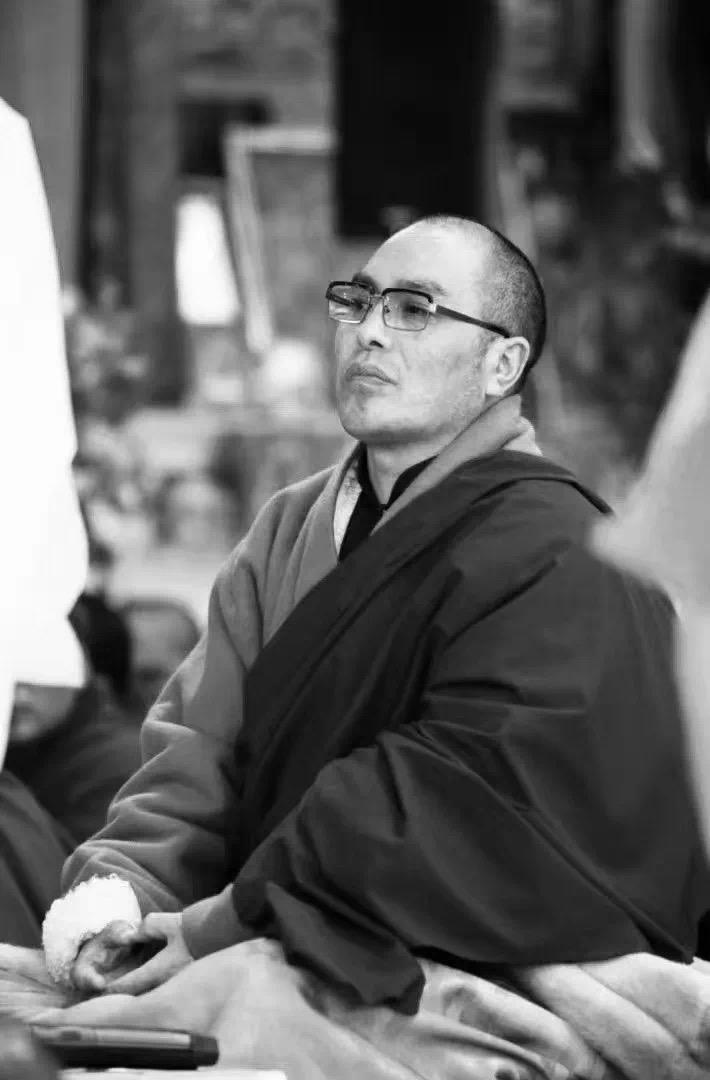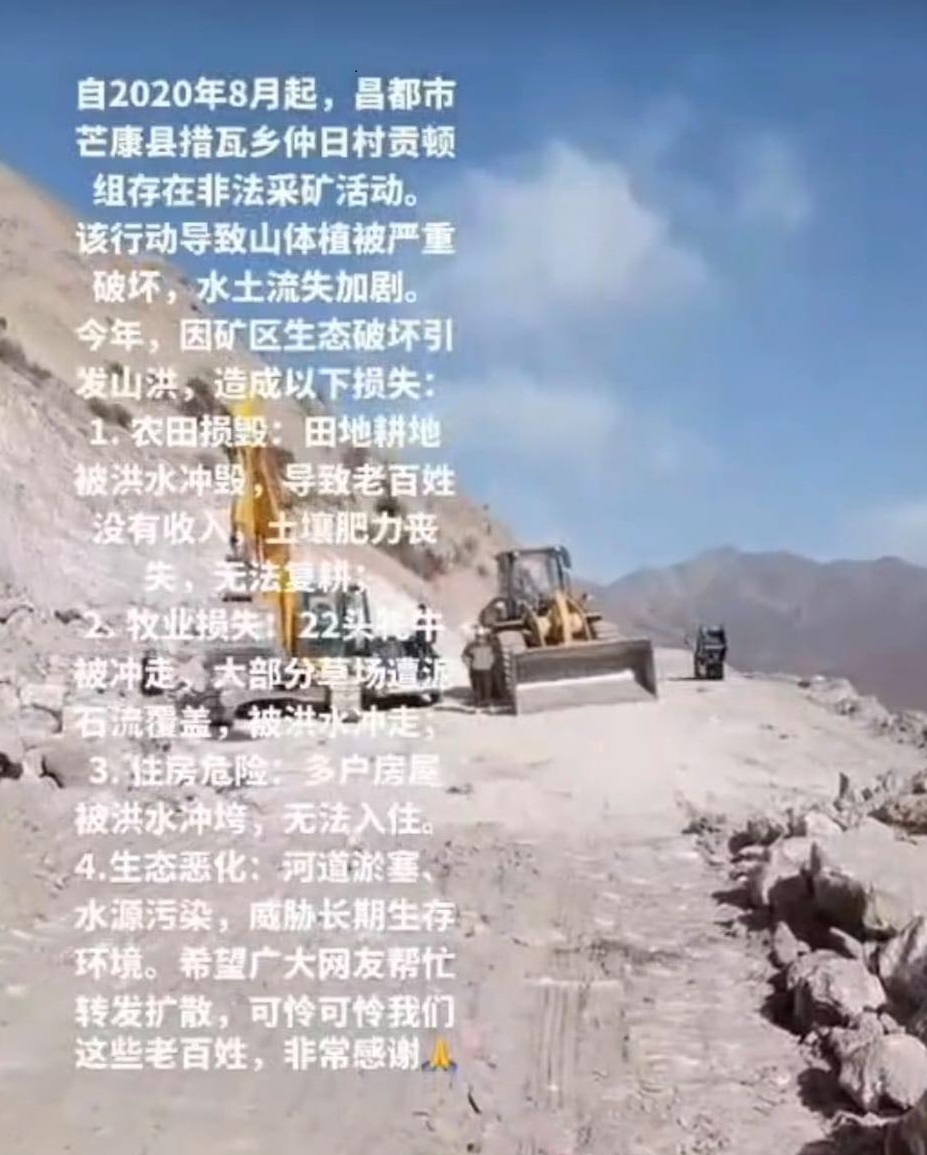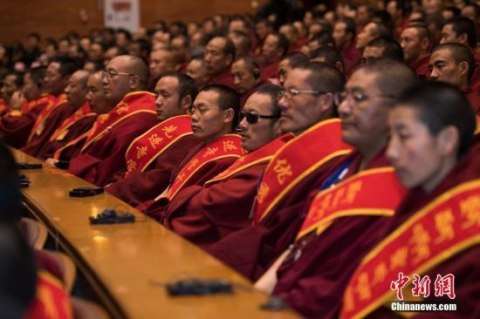
In December 2018, Chinese authorities put on public displays to foster links between Beijing and Tibet
Authorities continue to pursue their aggressive efforts to promote Tibetan goodwill towards China. Over the past few years, legal studies workshops and propaganda campaigns have been launched alongside new regulations and laws, which aim to ensure Tibetans’ loyalty to the Communist Party and the Chinese nation. These initiatives are backed up by Beijing’s coercive security apparatus inside Tibet.
Accordingly, on 21 December 2018, Chinese authorities assembled religious leaders in Lhasa to celebrate at an annual commendation ceremony. The participants were composed of representatives from more than seventy monasteries and nunneries in the Tibetan Autonomous Region (TAR).
Given the important role of Tibetan Buddhism within communities across Tibet, and the potentially subversive role it can play against Chinese rule, China has long sought to control religious institutions. Alongside repression, incentives have also been offered to encourage cooperation. During the ceremony, 7034 monks and nuns were given scarves and recognised with awards.
Following the 19th National Congress of the Communist Party of China, in late 2017, Beijing has renewed its efforts to make religion compatible with party doctrine. Thus, loyalties to the nation override every other significance and failing to comply with the dictate could be fatal for anyone. Ding Yexian, the deputy secretary of the Party Committee of the TAR stated:
The current development of any religion in China must go together with the stability of China and its socialist society in this new era. With this mechanism, we can achieve creative transformation and innovative development.
In addition, on 28 December 2018, the West Huangsi Museum opened a three-month exhibition jointly sponsored by the Chinese Buddhist Association, the United Front Work Department of the Qinghai Provincial Committee of the Communist Party of China, and the Higher Buddhist College of the Chinese Tibetan Language Department.
It was co-organised by the Buddhist College of the Tibetan Language Department of Qinghai Province, the China Democratic Party Historical Exhibition Hall, and the China Tibetology Research Centre.
The display featured Tibetan scholar Dobi Geshe Sherab Gyatso (1884-1968), known as Dobi Geshe, and presented him as one of the most influential and loyal partners of the Communist Party of China in the 20th century.
The museum and commendation ceremony are among the latest efforts by the Chinese Communist Party to foster a public spirit of affection for the Chinese motherland.


